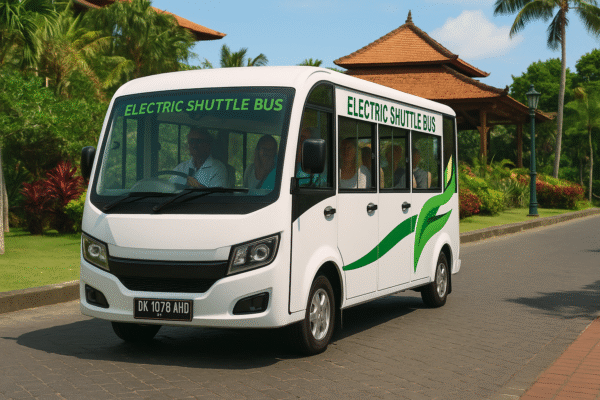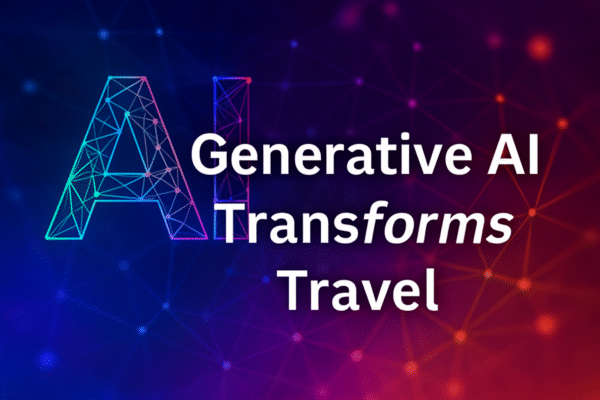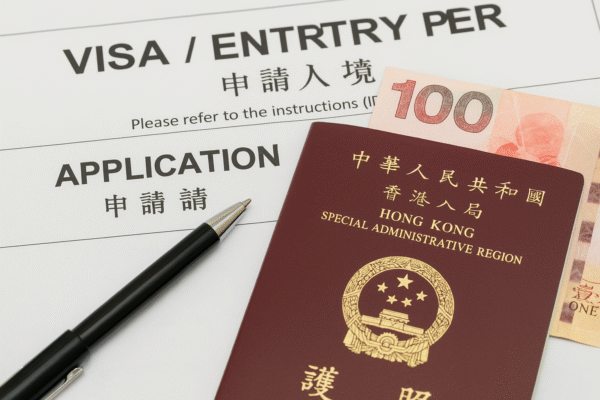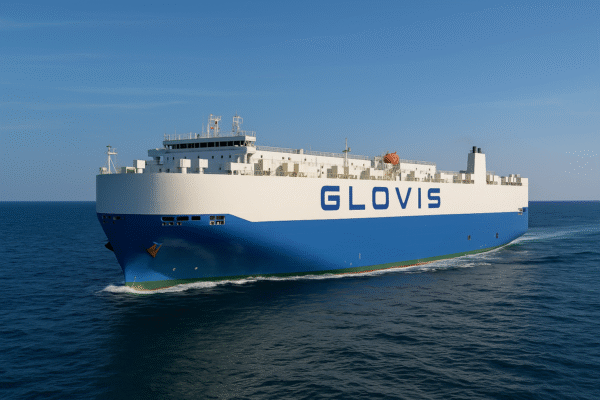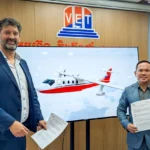In a groundbreaking leap forward for global shipping, South Korea’s Hyundai Glovis has launched the world’s first AI-powered autonomous car carrier fleet, signaling a transformative era for the maritime logistics industry. This bold initiative, in partnership with Avikus—an advanced autonomous navigation technology subsidiary of HD Hyundai—marks a global first in large-scale deployment of AI in maritime cargo shipping.
A Visionary Maritime Transformation Led by South Korea
Hyundai Glovis, the logistics arm of Hyundai Motor Group, aims to fundamentally reshape how vehicles and cargo are transported across oceans. As part of its future-forward initiative, the company plans to deploy seven AI-enabled Pure Car and Truck Carriers (PCTCs) by 2026. Each vessel will incorporate Avikus’ cutting-edge HiNAS 2.0 (Hyundai Intelligent Navigation Assistant System), a Level-2 Maritime Autonomous Surface Ship (MASS) solution capable of supporting partially unmanned navigation.
This initiative underscores South Korea’s growing reputation as a global leader in smart shipbuilding and autonomous maritime technologies. It aligns with the Ministry of Oceans and Fisheries’ 2030 roadmap to position the nation at the forefront of the global smart shipping market.
Inside the Technology: AI Meets Sea Navigation
The first of the AI-powered ships, Sunrise, stretches nearly 230 meters in length and can carry approximately 7,000 vehicles. While not entirely unmanned, Sunrise and its sister ships are equipped with AI tools that optimize navigation routes in real-time, reduce fuel consumption, and improve safety by minimizing human error.
Using AI-driven situational analysis, these vessels can autonomously chart and adjust courses, identify optimal fuel-efficient routes, and avoid hazards—all while maintaining remote human oversight. The application of such technology is expected to slash maritime fuel use and greenhouse gas emissions significantly.
Strategic Collaboration with Avikus: Speeding Time to Market
Rather than building a proprietary navigation platform, Hyundai Glovis strategically chose to integrate Avikus’ already field-tested HiNAS system. This decision accelerates rollout and leverages Avikus’ extensive R&D into autonomous maritime tech. Notably, Avikus made headlines in 2022 after successfully piloting a transoceanic voyage using autonomous navigation between the Gulf of Mexico and South Korea.
The initial AI-equipped fleet will include vessels like Glovis Sky, Glovis Safety, and Glovis Sonic. Hyundai Glovis currently operates 92 PCTCs globally, and with the success of these first seven ships, plans to retrofit or build additional AI-ready vessels in the coming years.
Global Impacts on Maritime Trade and Sustainability
Hyundai Glovis’ innovation isn’t just a technological feat—it’s a potential game-changer for global logistics. The use of AI in long-haul shipping, particularly across major trade routes between Asia, Europe, and North America, could drastically improve the speed, safety, and environmental impact of maritime trade.
The shift to autonomous navigation aligns with the International Maritime Organization’s decarbonization goals for 2050, which aim to cut the shipping industry’s greenhouse gas emissions by 50% compared to 2008 levels. AI-assisted route planning and operational optimization contribute significantly toward achieving these sustainability targets.
Moreover, Hyundai Glovis’ export partners—including major automotive manufacturers such as Volkswagen AG and Kia Corp.—stand to benefit from enhanced delivery reliability, faster transit times, and lower carbon footprints across their global supply chains.
Industry Reactions: Setting a New Benchmark
While rivals such as Japan’s NYK Line and Europe’s UECC have introduced AI route optimization tools, none have yet matched the scope of Hyundai Glovis’ fully autonomous navigation initiative. Industry experts suggest that this move may set new international standards and spark a wave of innovation among global shipping lines.
“This isn’t just a tech upgrade—it’s a total reimagination of how we operate vessels at sea,” said a shipping analyst at Clarkson Research Services. “Hyundai Glovis has taken the first definitive step into an autonomous future.”
A Sustainable Future for Shipping
The introduction of AI-enabled ships will not only help Hyundai Glovis cut operational costs but also support environmental commitments. By automating route planning and enhancing vessel control, the company expects a 6–10% reduction in fuel consumption per voyage and a similar cut in CO₂ emissions.
This transformation is timely, as the maritime industry faces increasing pressure to adapt to climate change, labor shortages, and rising operational costs. Autonomous vessels promise enhanced safety, streamlined shipping, and smarter fleet management—all of which are pivotal to the industry’s evolution.
Conclusion: The Dawn of AI-Powered Global Logistics
Hyundai Glovis’ launch of the world’s first autonomous AI-driven car carrier fleet marks a pivotal moment in maritime history. It reflects a growing convergence between artificial intelligence, sustainability, and global logistics. With seven AI-equipped vessels set to sail by 2026 and plans for more, the company is not only enhancing its competitive edge but also paving the way for a more efficient and environmentally responsible global supply chain.
As the first ship sets sail from South Korea’s Ulsan Port to destinations like Hamburg and Long Beach, the global shipping industry watches with anticipation. The future of autonomous maritime transport has officially begun—with Hyundai Glovis at the helm.
For more travel news like this, keep reading Global Travel Wire


